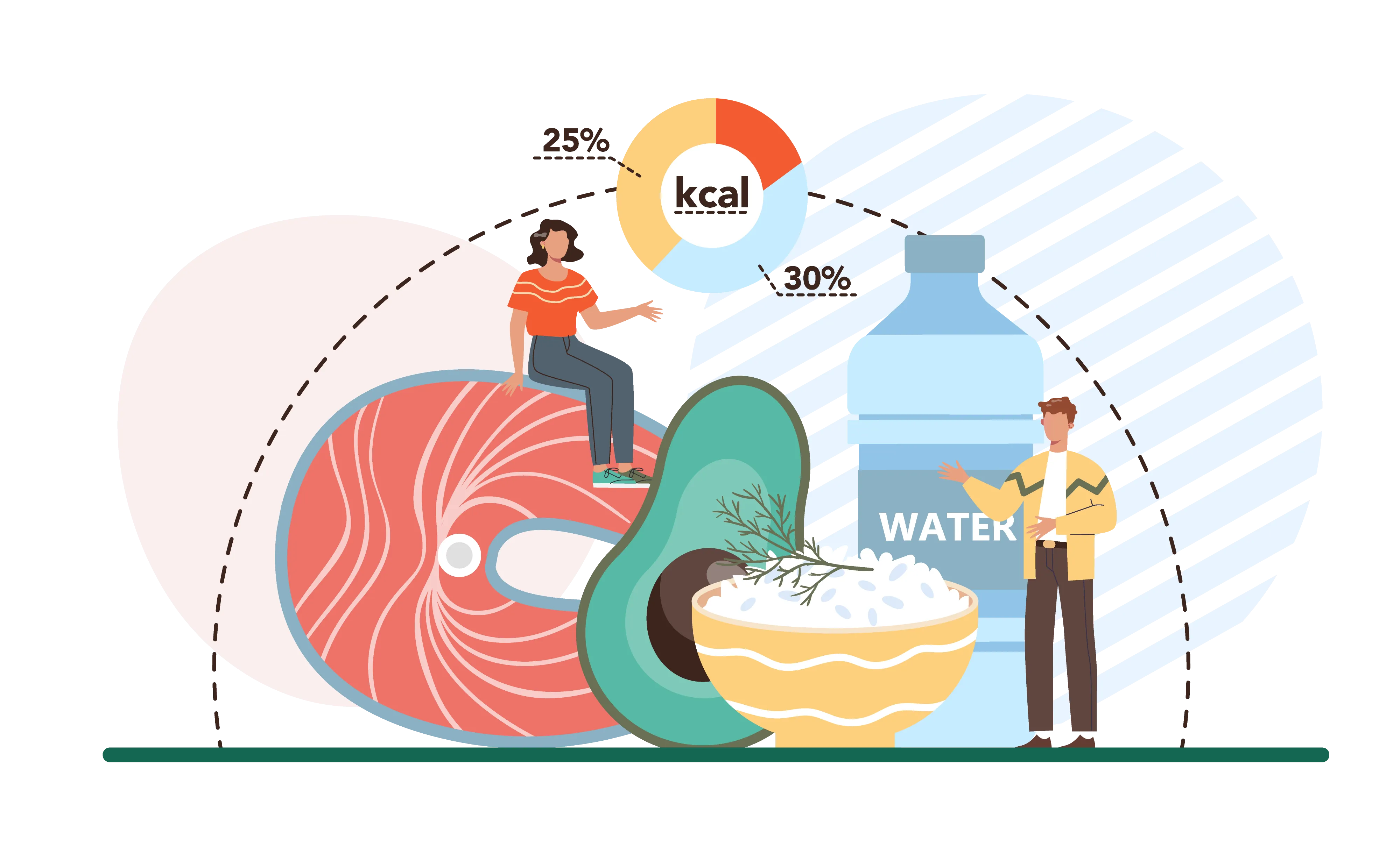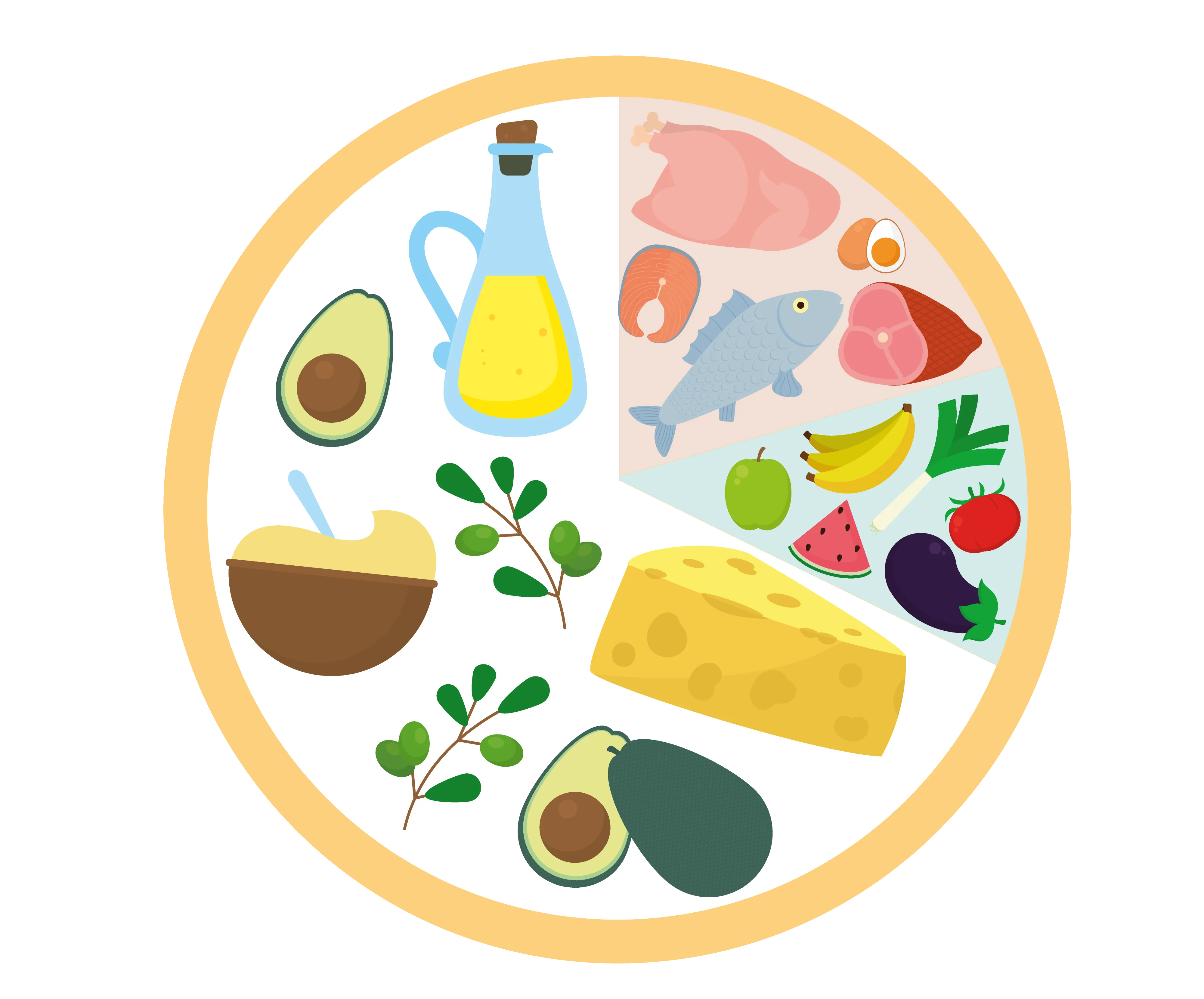Nutrition | 4 min read
6 Crucial Nutrition Concepts That Form a Key Part of a Healthy Diet
Medically reviewed by
Table of Content
Key Takeaways
- Understand nutrition concepts properly before starting a diet plan
- A balanced diet contains macros and micros in right proportions
- Consuming protein-rich foods form the basis of a healthy diet
Eating nutrition-rich food is the key to maintaining good health. The basis of a good diet plan is a balanced diet that doesn’t focus only on one food group. Rather than going for fad diets, consuming a healthy diet that contains all essential nutrients should be the prime goal of your weight loss journey. Remember, a good diet is all about eating less and eating fresh. Before understanding what a good diet should essentially look like, it is important to have an in-depth view of some basic nutrition concepts.
By knowing about nutrition-rich food, and various nutrition sources, you will be able to get the right nutrition for immunity and overall health. To put in simple words, nutrition is a major factor that determines your health conditions. Here are the five key nutrients that you should include in your diet.
● Carbohydrates● Fats● Proteins● Vitamins● MineralsWhile the first three are called macronutrients, the other two are known as micronutrients. Their basic function is to provide energy, build your body structure, protect you from diseases and regulate various chemical processes. Read on to get a clear idea about some of the basic nutrition concepts and understand the key to a healthy diet.
Additional read: What are Macronutrients and How Important are They for your Health?
Eat Whole Grain Foods
Whole grains like oats, buckwheat, millet and quinoa contain dietary fiber and complex carbs. They provide essential nutrients for your body. Further, they allow you to keep your weight in check by ensuring you are full for a longer period. When planning or having meals, take care to include whole grain foods daily. Ensure that half the foods you eat are made of whole grains. For instance, you can switch breakfast cereals with oatmeal for better health.
Consume Fresh Fruits and Vegetables
A diet rich in fruits and vegetables not only provides carbs but also minerals and vitamins. A few of their functions are as follows.
· Iron is necessary to prevent anemia as it helps the transport of oxygen in blood.· Vitamin A promotes good vision [1].· Vitamin C facilitates wounds to heal faster and helps your body fight infections.· Calcium and magnesium are vital as they minimize high blood pressure and ease menstrual cramps. They also help your muscles and blood vessels relax.It is important for you to consume at least 5-6 servings of fruits and vegetables to boost your immunity. Vitamins and minerals support your overall health while playing vital roles in cell metabolism.
Include Protein-Rich Foods in Your Diet
Proteins are found in abundance in legumes, soybeans, eggs, and poultry. They contain amino acids that are important for the growth of your body. Proteins also help repair damaged tissues. Without proper protein intake, your body may not be able to fight infections and inflammation. Try minimizing red meat intake and include other protein rich foods like beans, nuts, fish and low-fat dairy products in your meals.

Minimize Sodium Intake
Excessive sodium intake can harm your health. If the sodium level in your body increases, it can cause high blood pressure over a period of time [2]. This can result in serious health complications if not managed on time. So, avoid processed foods as they tend to contain a higher percentage of salt. Replace salt with other nutritious herbs like garlic, ground black pepper and more. Apart from their nutrition, they add delicious flavors to your meals!
Reduce Your Meal Portions
Overeating can result in weight gain and many other health problems. To check this, practice portion control and enjoy each meal. Instead of gulping down your food, chew and eat it
properly. This helps you to limit your food intake as you are more aware of when you feel full. Try having six smaller meals rather than three big meals to manage your hunger pangs better.
Avoid Consuming Saturated Fats
Saturated fats increase bad cholesterol levels in your body. So, avoid foods rich in saturated or trans-fats. If your cholesterol levels increase, you may be at a higher risk for heart ailments [3]. Ensure you restrict the intake of saturated fats below 10% of your total calorie intake.
Additional read: A Guide to Nutrition Therapy: What are its Benefits on Your Health?Now that you have understood the importance of nutrition for immunity, remember that you need to lead an active lifestyle for good health too. Controlling how much you eat and following a balanced diet are the crucial factors to leading a healthy life. If you have any queries on nutrition, you can connect to doctors and experts on Bajaj Finserv Health. Book an online consultation and get your doubts resolved from the comfort of your home and lead a nutrition-rich life!
References
- https://academic.oup.com/jn/article/126/suppl_4/1208S/4724791?login=true
- https://www.sciencedirect.com/science/article/abs/pii/S0033062006000831
- https://journals.plos.org/plosone/article?id=10.1371/journal.pone.0200017
Disclaimer
Please note that this article is solely meant for informational purposes and Bajaj Finserv Health Limited (“BFHL”) does not shoulder any responsibility of the views/advice/information expressed/given by the writer/reviewer/originator. This article should not be considered as a substitute for any medical advice, diagnosis or treatment. Always consult with your trusted physician/qualified healthcare professional to evaluate your medical condition. The above article has been reviewed by a qualified doctor and BFHL is not responsible for any damages for any information or services provided by any third party.





